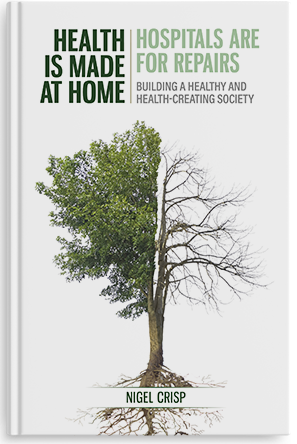20 May 1-2.30pm
COMMUNITY SELF-ORGANISATION:
The route to sustainability.
The first ever organization to do the newly launched C2 programme in 2004 was the Camborne Neighbourhood Beat Team of 8 officers led by Sgt David Aynsley, who were looking for a fresh approach to reduce youth offending and ASB.
TR14ers, named by the young people after their post-code, was founded in 2005 following a Listening Event where the young people said they wanted street dance. Over 2,000 young people have benefited since and today’s story of the co-evolution of the TR14ers is narrated by David Aynsley and one of their young directors, Tia Fanelli.
Human rights
In July 2018 two members were keynote speakers at a Council of Europe conference in Strasbourg focusing on the rights of young people living in disadvantaged communities to access green space and health creating activity.
The Council of Europe magazine ran an article about the TR14ers.
The piece of research: Understanding the sustainable processes and impact of engaging young people in a peer-led dance group, the TR14ers
Shanna Dawes, a founder member of the TR14ers gives a powerful insight into the life of a young person in Camborne before the TR14ers, followed by their own, self-choreographed spectacular dance routine.
Complexity
The principles of the C2 approach are built around complexity theory. Co-founder of C2 Dr Robin Durie, deputy director of the Wellcome Centre, Exeter, and a Senior Research Fellow and Lecturer in Politics at University of Exeter, highlights the benefits of a complexity approach using the story of the TR14ers to illustrate this. Read the interview.
Complexity
The C2 Treasure Trove
Simple
Could complexity theory help the regeneration world see the wood from the trees?
Nerdy
Complexity science has been successfully applied in many settings globally to ‘turnaround’ failing organizations. Viewing communities as complex evolving systems has been key to C2 success and transferability for 25 years.
In this podcast, our friend and guru, Professor Eve-Mitleton-Kelly explains the principles as applied to permaculture.

